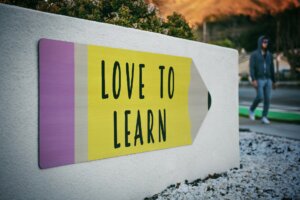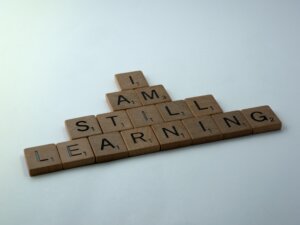© Copyright Carter McNamara, MBA, PhD, Authenticity Consulting, LLC.
Sections of This Topic Include
- Some Contemporary Principles of Adult Learning — Principles Too Often Forgotten
- Understand Common Myths About Training and Development
- Additional Resources
- Library’s Blogs About Training and Development
Also, consider
Related Library Topics
Learn More in the Library’s Blogs Related to Adult Learning Principles
In addition to the articles on this current page, also see the following blogs that have posts related to Principles of Adult Learning. Scan down the blog’s page to see various posts. Also, see the section “Recent Blog Posts” in the sidebar of the blog or click on “Next” near the bottom of a post in the blog. The blog also links to numerous free related resources.
- Library’s Career Management Blog
- Library’s Human Resources Blog
- Library’s Leadership Blog
- Library’s Supervision Blog
- Library’s Training and Development Blog
Some Contemporary Principles of Adult Learning — Principles Too Often Forgotten
The process of action learning, founded by Reginald Revans about 50 years ago in England, is based on contemporary views of adult learning. Action learning asserts that adults learn best when:
- Working to address a current, real-world problem
- They are highly vest in solving the current problem
- They actually apply new materials and information and
- Exchange ongoing feedback around their experiences
These principles are further substantiated by the work of Peter Senge as described in his book Fifth Discipline (Doubleday, 1990). Although the principles seem obvious, think of how very little they are utilized in contemporary, traditional forms of education where people are expected to sit in a classroom and hear from an expert on the subject matter. After those classes, learners rarely see each other, much less to even share ongoing feedback around applying the new learning.
Understand Common Myths About Training and Development
As you read the following list of major problems, think about your own experiences with training and development.
Myth #1: One-shot, “quick-fix” training sessions are usually enough.
How often do we hear of organizations that implement development programs in which participants only have to attend training sessions — no accountability for implementation and learning required! If people are truly serious about developing skills, they need to put in more practice and effort than that.
Myth #2: Learners almost always apply materials from training sessions.
It’s often difficult — and rare indeed — for learners to later transfer learning from training sessions (courses, seminars, and workshops) over to their lives and work. Training methods rarely incorporate real-life, current challenges in the lives of learners. Therefore, learners are left on their own to later apply new concepts from the many books and binders gained during the training sessions.
Myth #3: People can achieve major goals by taking one-shot training sessions.
Few major challenges in life or work are addressed by some specific procedure conveyed during a training session. Rather, learners get stuck because of strong misperceptions, feelings, or structural problems. Getting unstuck requires ongoing support, reflection, and testing of new methods on current, real-life challenges. This ongoing support, reflection, and testing in real life are seldom included in traditional training sessions.
Myth #4: Trainers don’t need to plan for ongoing support among learners.
Few training programs recognize that learners very often need ongoing support to take the risks necessary to apply new information and materials from training sessions. At the end of a course, seminar, or workshop, learners are left on their own.
Myth #5: Learners are not cynical about training and development.
Trainers and practitioners continue to ignore this major issue. To deal with cynicism, people must have a forum in which to vent, to be authentic. Training programs rarely afford that forum.
Myth #6: Training is not really expensive.
The price of education, including training and development, is skyrocketing while creating a social crisis that leaves many businesses and their employees unable to access traditional means of education, training, and development.
Additional Resources
- Learning Strategies
- Three Learning Factors
- Is Lecture Learning?
- How We Learn–Six Points You Should Know
Learn More in the Library’s Blogs Related to This Topic
In addition to the articles on this current page, also see the following blogs that have posts related to this topic. Scan down the blog’s page to see various posts. Also, see the section “Recent Blog Posts” in the sidebar of the blog or click on “Next” near the bottom of a post in the blog. The blog also links to numerous free related resources.
- Library’s Career Management Blog
- Library’s Human Resources Blog
- Library’s Leadership Blog
- Library’s Supervision Blog
- Library’s Training and Development Blog
Go to the main Training and Development page.
For the Category of Training and Development:
To round out your knowledge of this Library topic, you may want to review some related topics, available from the link below. Each of the related topics includes free, online resources.
Also, scan the Recommended Books listed below. They have been selected for their relevance and highly practical nature.
 Sections of this topic
Sections of this topic
















